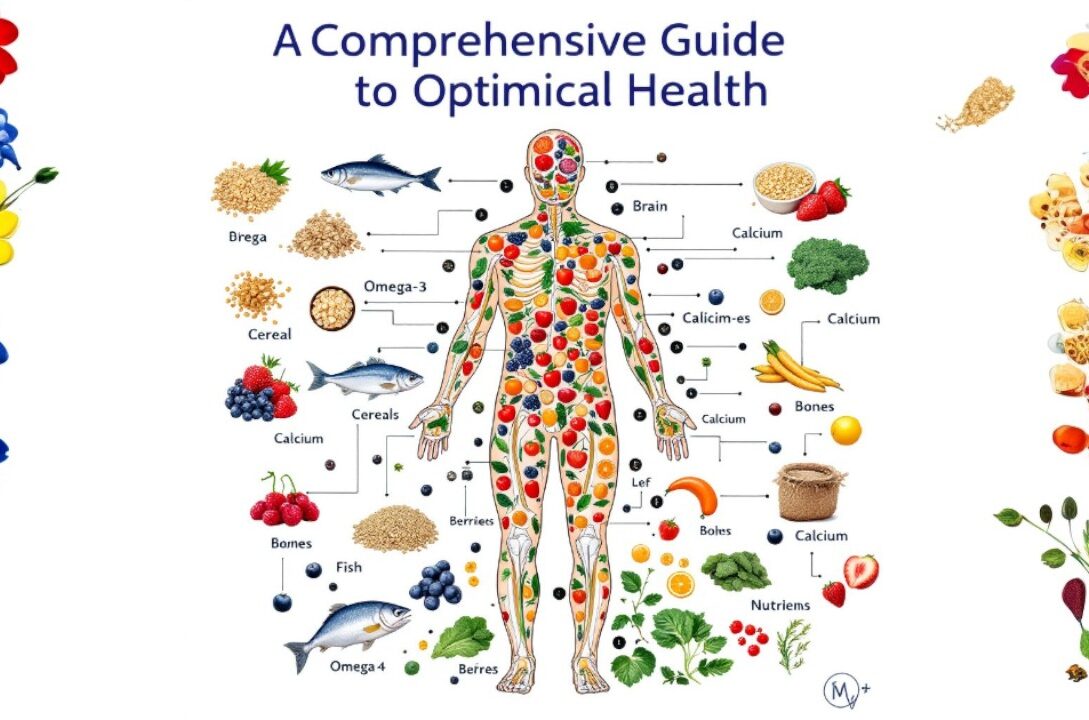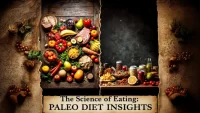Nutrient deficiencies are more common than you might think. Even with a balanced diet, many people lack essential vitamins and minerals necessary for optimal health. Left unaddressed, these deficiencies can lead to fatigue, weakened immunity, and even chronic health issues.
The good news? Identifying and correcting nutrient deficiencies is entirely within your reach. In this guide, we’ll explore the most common deficiencies, their symptoms, and practical steps to restore balance and boost your overall well-being.
Why Nutrient Deficiencies Matter
The Role of Nutrients in Your Body
Nutrients are the building blocks of life. They fuel your energy, support your immune system, and keep your organs functioning properly. When you lack essential vitamins and minerals, your body can’t perform at its best.
Who’s at Risk?
While anyone can develop a nutrient deficiency, certain groups are more vulnerable:
- Vegetarians and vegans: May lack iron, vitamin B12, or omega-3s.
- Older adults: Often deficient in vitamin D, calcium, or B vitamins.
- People with digestive issues: Conditions like Crohn’s disease or celiac disease can impair nutrient absorption.
- Pregnant women: Require higher levels of iron, folate, and other nutrients.
Common Nutrient Deficiencies and Their Symptoms
1. Iron Deficiency
Iron is essential for producing hemoglobin, which carries oxygen in your blood.
Symptoms:
- Fatigue and weakness.
- Pale skin and brittle nails.
- Shortness of breath.
How to Address It:
- Eat iron-rich foods like red meat, spinach, lentils, and fortified cereals.
- Pair iron-rich foods with vitamin C (e.g., oranges or bell peppers) to enhance absorption.
- Consider supplements if recommended by a healthcare provider.
2. Vitamin D Deficiency
Vitamin D is crucial for bone health, immunity, and mood regulation.
Symptoms:
- Frequent illnesses or infections.
- Bone pain or muscle weakness.
- Low mood or depression.
How to Address It:
- Spend 15-20 minutes in sunlight daily.
- Eat foods like fatty fish, egg yolks, and fortified milk.
- Take a vitamin D supplement if levels are low.
3. Vitamin B12 Deficiency
Vitamin B12 supports nerve function and red blood cell production.
Symptoms:
- Fatigue and weakness.
- Tingling or numbness in hands and feet.
- Memory problems or confusion.
How to Address It:
- Consume animal products like meat, fish, and dairy.
- Vegans can opt for fortified foods or supplements.
- Get regular blood tests to monitor levels.
4. Magnesium Deficiency
Magnesium plays a role in over 300 biochemical reactions in the body.
Symptoms:
- Muscle cramps or spasms.
- Insomnia or poor sleep quality.
- High blood pressure.
How to Address It:
- Eat magnesium-rich foods like nuts, seeds, whole grains, and leafy greens.
- Consider a magnesium supplement if dietary intake is insufficient.
5. Calcium Deficiency
Calcium is vital for strong bones and teeth.
Symptoms:
- Brittle nails and hair.
- Muscle cramps or spasms.
- Osteoporosis or bone fractures.
How to Address It:
- Include dairy products, leafy greens, and fortified plant-based milks in your diet.
- Ensure adequate vitamin D intake to improve calcium absorption.
How to Identify Nutrient Deficiencies
Recognize the Symptoms
Pay attention to persistent symptoms like fatigue, hair loss, or frequent illnesses. These could signal a deficiency.
Get a Blood Test
A simple blood test can reveal your levels of key nutrients like iron, vitamin D, and B12. Ask your doctor for a comprehensive panel.
Track Your Diet
Use a food diary or app to monitor your nutrient intake. This can help you identify gaps in your diet.
How to Address Nutrient Deficiencies
1. Optimize Your Diet
The best way to prevent deficiencies is through a balanced diet rich in whole, nutrient-dense foods. Focus on:
- Fruits and vegetables: Aim for a variety of colors.
- Lean proteins: Include fish, poultry, beans, and tofu.
- Healthy fats: Incorporate avocados, nuts, and olive oil.
- Whole grains: Choose quinoa, brown rice, and oats.
2. Consider Supplements
While food should always come first, supplements can help fill nutritional gaps. Always consult a healthcare provider before starting any supplement regimen.
3. Improve Absorption
Some nutrients work better together. For example:
- Vitamin D enhances calcium absorption.
- Vitamin C boosts iron absorption.
- Healthy fats improve the uptake of fat-soluble vitamins (A, D, E, K).
Preventing Nutrient Deficiencies
Eat a Varied Diet
No single food provides all the nutrients your body needs. Aim for diversity in your meals to cover all your nutritional bases.
Cook Smart
Some cooking methods can deplete nutrients. To preserve vitamins and minerals:
- Steam or sauté vegetables instead of boiling.
- Avoid overcooking meats.
- Store foods properly to maintain freshness.
Stay Hydrated
Water is essential for nutrient transport and absorption. Aim for 8-10 glasses per day.
FAQs
1. Can stress cause nutrient deficiencies?
Yes, chronic stress can deplete nutrients like magnesium and B vitamins.
2. How long does it take to correct a deficiency?
It depends on the severity and the nutrient. Some deficiencies improve within weeks, while others may take months.
3. Are nutrient deficiencies more common in certain seasons?
Yes, vitamin D deficiency is more common in winter due to reduced sunlight exposure.
4. Can I get enough nutrients from a plant-based diet?
Yes, but you may need to plan carefully to ensure adequate intake of iron, B12, and omega-3s.
5. Are there any risks to taking too many supplements?
Yes, excessive supplementation can lead to toxicity. Always follow recommended dosages and consult a healthcare provider.
Conclusion: Take Charge of Your Nutritional Health
Nutrient deficiencies can have a significant impact on your health, but they’re also preventable and treatable. By recognizing the symptoms, optimizing your diet, and seeking professional guidance, you can restore balance and feel your best.
Your health is your greatest asset. Start today by assessing your diet, scheduling a blood test, and making small, sustainable changes. For more information, check out these trusted resources:
- National Institutes of Health: Nutrient Recommendations
- Harvard School of Public Health: The Nutrition Source
Take the first step toward optimal health—your body will thank you!











